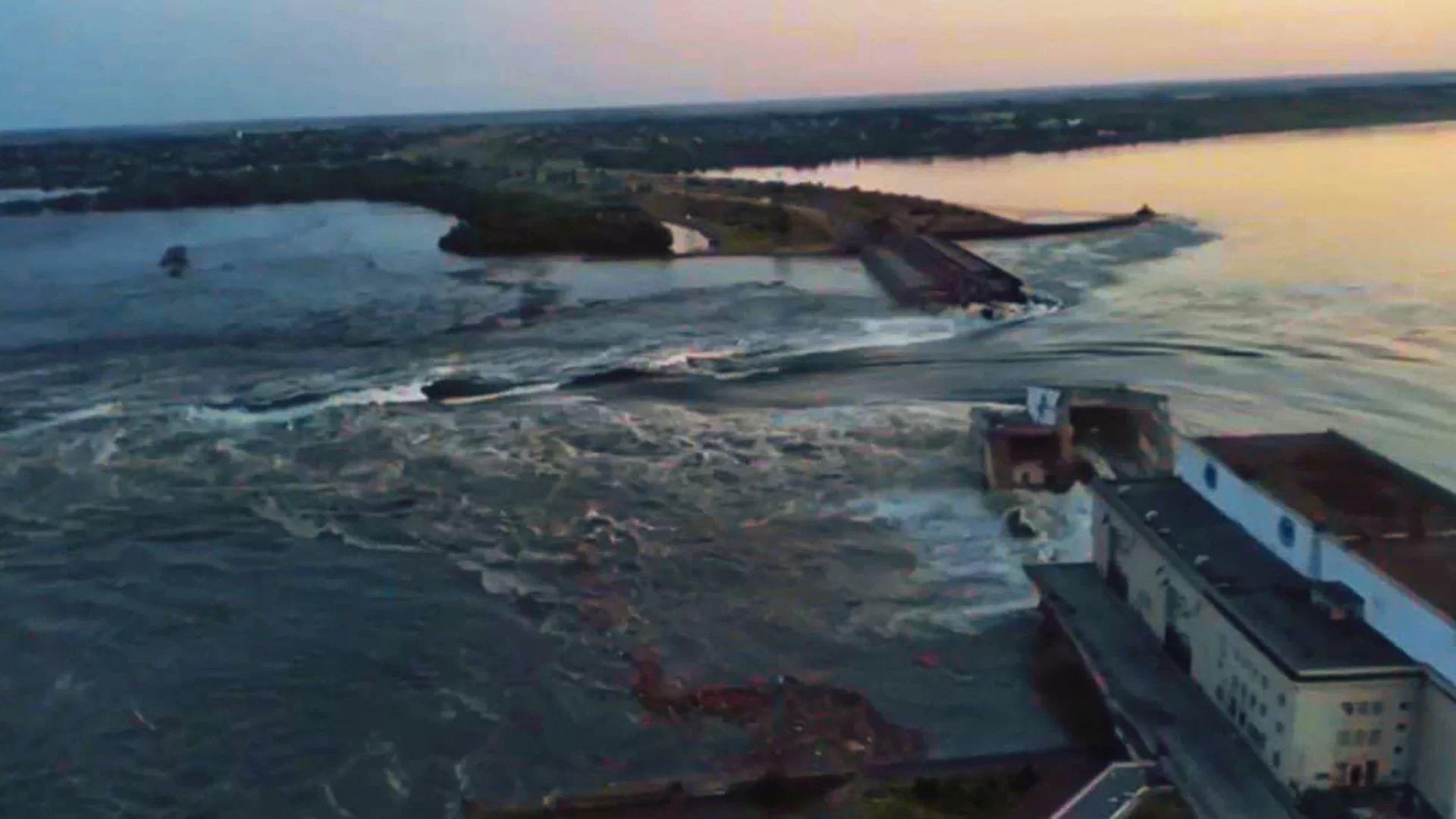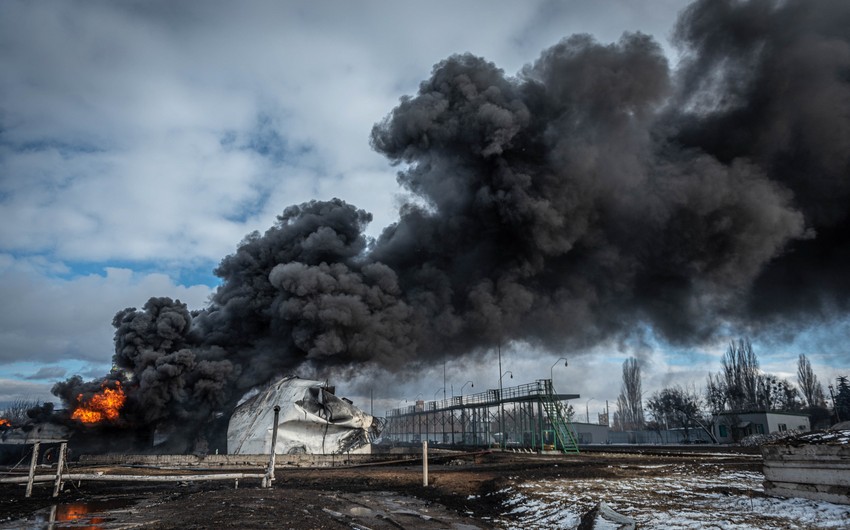Russia and Ukraine have been in conflict since 2014. As part of this conflict, Russia created a large military force near the border with Ukraine and inside Belarus in 2021. On February 24, 2022, Russian President Vladimir Putin announced a special military operation in Ukraine, which added fuel to the war between the two countries. As a result, it is impossible to predict when the war will end, and it has caused and continues to cause serious damage to the world economy and ecology, in addition to killing thousands of people in the past period. However, although socio-cultural problems and damage to the economy are discussed from time to time, the damage caused by war to nature and the threat to the ecological security of the planet are somewhat neglected. The most important part of the current global environmental problem, which needs to be discussed, is the pollution of the Black Sea due to the war.
The war is causing irreparable damage to the area today since the important water resources supplying the Black Sea lie within Ukraine's borders.
As it is known, Ukraine's economy is mainly based on the chemical industry, nuclear energy and agriculture. According to the 2021 list of the State Emergency Service of Ukraine, the country has 609 industrial enterprises storing more than 219 thousand tons of toxic chemicals, and many of these enterprises are located near rivers and reservoirs due to the water consumption of the chemical industry. In other words, damage to enterprises and infrastructures caused by the war leads to the mixing of chemicals into the waters and pollution of the Black Sea in a wide range.

According to the United Nations (UN) report related to the subject, some events backing this threat occurred during the war. One of them is a fire at the facility in Chernihiv near the Dnieper, one of the largest rivers that feeds the Black Sea, when a tank filled with 12 tons of liquid ammonia failed. In general, there are dozens of examples of explosions of ammunition depots, as well as chemical facilities, due to Russian-Ukrainian war. These also indicate the level of pollution of the Black Sea. Another problem is the presence of 92% hydrogen sulfide in the water layer below 150 meters of this sea. The Turkish Marine Research Foundation considers poison gas to be a major threat.
Even before the war, the river heavily loaded with nitrogen and phosphorus-containing substances and polluted by industrial and mining wastes flowed into the shallow, mixed surface waters of the Black Sea. In addition, coastal industrial waste was dumped directly into the sea with little or no treatment. The war made the situation doubly difficult. According to a 2022 UN report, long-standing environmental problems in Ukraine due to rapid industrialization and lack of pollution control have led to a serious ecological imbalance in the current war.
Russia's announcement that it will eliminate all cargo ships in the Black Sea as military targets, and the destruction of many equipment at sea before this process, has made life here very difficult.

Since the exact number of mines thrown into the Black Sea and exploded there is not known, the extent of the damage to the marine ecosystem is also unknown. But it is a reality where problems arise that are difficult to restore or cannot be restored. Today, even carrying out cargo transportation in the Black Sea has a negative impact on the biodiversity here. Thus, during the implementation of this process, new species that feed on smaller marine creatures enter the fauna, and as a result, the threat of extinction of these small creatures appears. The Russia-Ukraine war has also had a major impact on fishing in the Black Sea, food security and summer tourism in the Black Sea countries. In particular, the brotherly country Türkiye, which carries out more than 60% of its fishing at the expense of the Black Sea, has faced a serious loss in this direction. Due to pollution, the income from tourism in this region has also decreased. Because every year, tourists from different countries who go to the Black Sea shores have started turning to other places due to pollution. This can be clearly seen in Georgia, one of the tourist countries.
The response to the environmental disaster in the Black Sea, the level of investigation and coverage of this global problem does not seem adequate to the extent of what happened. When we studied the issue, we found certain scientific articles based on accurate facts by Turkish experts on the Black Sea, but we also see that some incorrect information is transmitted in the media materials. In order to overcome this problem and draw attention to the changing ecosystem of the Black Sea, which is a big blow to nature and economy, it is necessary to organize seminars and conferences in this direction from time to time. In the last days of June, one such event serving to raise awareness in this direction was held in Georgia under the name "Environmental Problems in the Black Sea Region in Times of War".
Bayram Ozturk, professor of Istanbul University, head of the Department of Marine Biology of the Faculty of Aquatic Sciences, president of the Turkish Marine Research Foundation, was the main instructor at the seminar organized for journalists and bloggers from Azerbaijan, Ukraine, Georgia, Moldova, Belarus and Armenia. In the presentation entitled "Environment in the Black Sea region: wars, damage and future prospects", the Turkish researcher spoke about the threats caused by the war and noted that due to the discharge of waste water, the Black Sea has become seriously polluted, and the water quality has decreased significantly. In addition, there is also acoustic pollution due to the current military activities in the sea. As a whole, the war has seriously damaged the ecosystem of the Black Sea and continues to do so.
Bayram Ozturk said that stocks of bluefin tuna and swordfish in the Black Sea have been exhausted, and the number of sturgeon has decreased sharply. Currently, the most threatened species in the Black Sea due to pollution are marine mammals, migratory seabirds and coastal fish.

Speaking about the importance of relying on scientific research while preparing news, Ozturk drew attention to reports published about dolphins that do not reflect reality. The professor cited as an example the news that more than five thousand dolphins died due to the war in the Black Sea. He added that according to his research, the number of dolphins who died during the war due to the problems caused by the war was less than a thousand.
"However, it is a reality that the war poses a great threat to dolphins' lives," said the professor.
Ozturk also brought to the attention of journalists the Bucharest Convention on the Protection of the Black Sea from Pollution, signed in April 1992:
"The Convention was ratified by all the Black Sea countries at the beginning of 1994. Its main goal is to justify the common obligation of the parties to the agreement on the prevention and control of pollution in the Black Sea for the purpose of protecting the marine environment, and to provide a legal basis for cooperation and agreed measures to fulfill this obligation."
In conclusion, the professor emphasized that peace is important to get rid of the current problems. He noted that in order to understand Russia, it is necessary to evaluate its phantom syndrome.
In response to my question, "is there an alternative way to reduce pollution in the Black Sea if Russia continues the war and rejects peace? Can the other four states conduct some negotiations in this direction and take real steps against Russia?", Ozturk said that in the current situation, each country can take certain measures only in the part of its territory.
After this seminar, Ozturk organized another online meeting on July 26 to inform foreign media representatives about his research and the latest situation in the Black Sea. Of course, in the current situation, it is important to implement such measures in terms of the accuracy of the published information. In general, attention to ecological issues is one of the key issues in the world. Due to the fact that the Black Sea is surrounded by several countries and occupies a large place in the trade and economy of those countries, its pollution can lead to the deterioration of the situation in the whole of Europe and in the north of Africa.


 https://static.report.az/photo/aa442398-1c1d-3473-9616-41cd4efccfe5.jpg
https://static.report.az/photo/aa442398-1c1d-3473-9616-41cd4efccfe5.jpg

